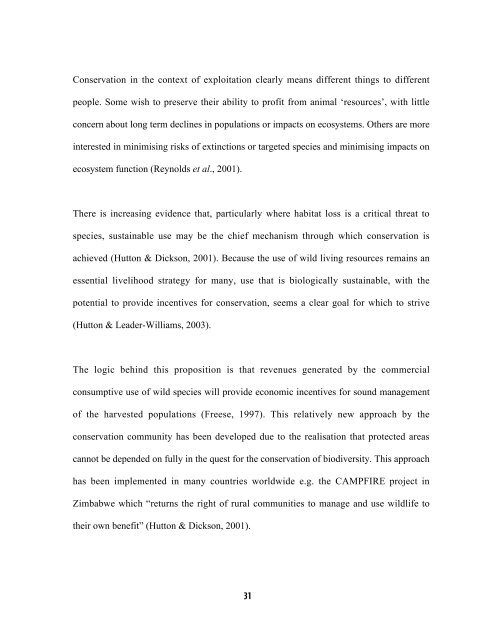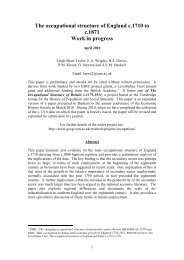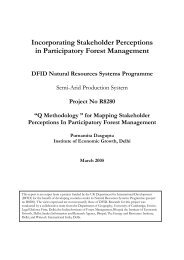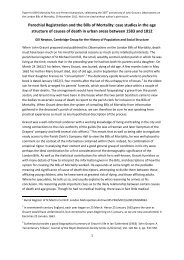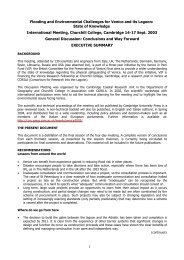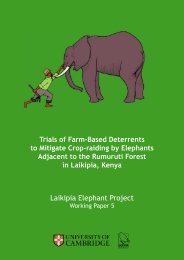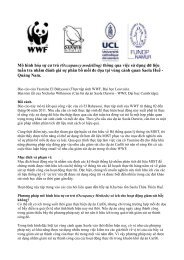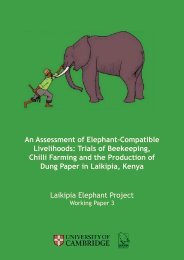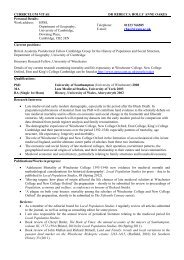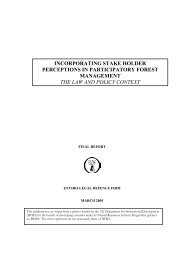Rob Small's Masters Thesis: Uptake and the success of insect ...
Rob Small's Masters Thesis: Uptake and the success of insect ...
Rob Small's Masters Thesis: Uptake and the success of insect ...
Create successful ePaper yourself
Turn your PDF publications into a flip-book with our unique Google optimized e-Paper software.
Conservation in <strong>the</strong> context <strong>of</strong> exploitation clearly means different things to different<br />
people. Some wish to preserve <strong>the</strong>ir ability to pr<strong>of</strong>it from animal ‘resources’, with little<br />
concern about long term declines in populations or impacts on ecosystems. O<strong>the</strong>rs are more<br />
interested in minimising risks <strong>of</strong> extinctions or targeted species <strong>and</strong> minimising impacts on<br />
ecosystem function (Reynolds et al., 2001).<br />
There is increasing evidence that, particularly where habitat loss is a critical threat to<br />
species, sustainable use may be <strong>the</strong> chief mechanism through which conservation is<br />
achieved (Hutton & Dickson, 2001). Because <strong>the</strong> use <strong>of</strong> wild living resources remains an<br />
essential livelihood strategy for many, use that is biologically sustainable, with <strong>the</strong><br />
potential to provide incentives for conservation, seems a clear goal for which to strive<br />
(Hutton & Leader-Williams, 2003).<br />
The logic behind this proposition is that revenues generated by <strong>the</strong> commercial<br />
consumptive use <strong>of</strong> wild species will provide economic incentives for sound management<br />
<strong>of</strong> <strong>the</strong> harvested populations (Freese, 1997). This relatively new approach by <strong>the</strong><br />
conservation community has been developed due to <strong>the</strong> realisation that protected areas<br />
cannot be depended on fully in <strong>the</strong> quest for <strong>the</strong> conservation <strong>of</strong> biodiversity. This approach<br />
has been implemented in many countries worldwide e.g. <strong>the</strong> CAMPFIRE project in<br />
Zimbabwe which “returns <strong>the</strong> right <strong>of</strong> rural communities to manage <strong>and</strong> use wildlife to<br />
<strong>the</strong>ir own benefit” (Hutton & Dickson, 2001).<br />
31


